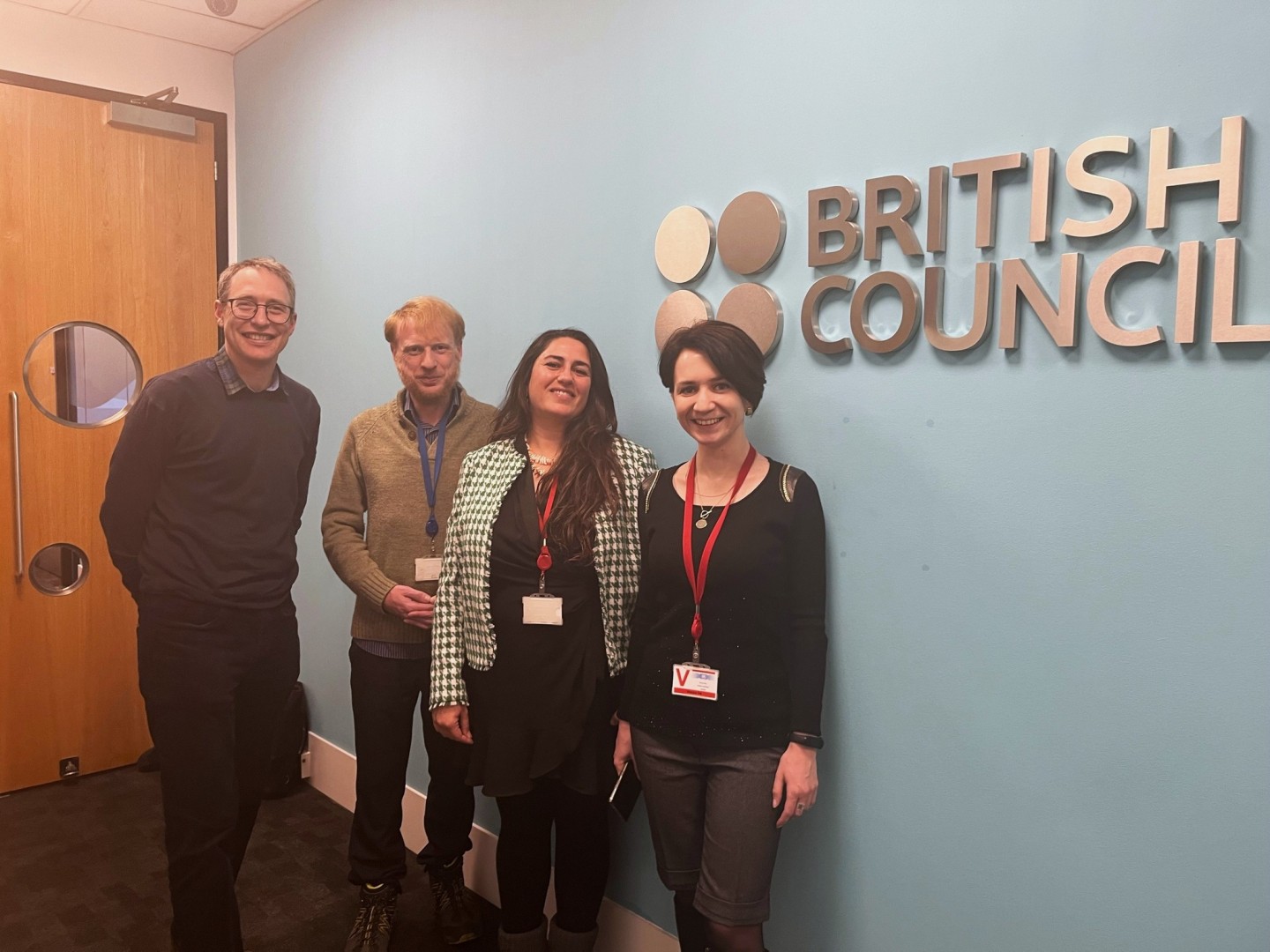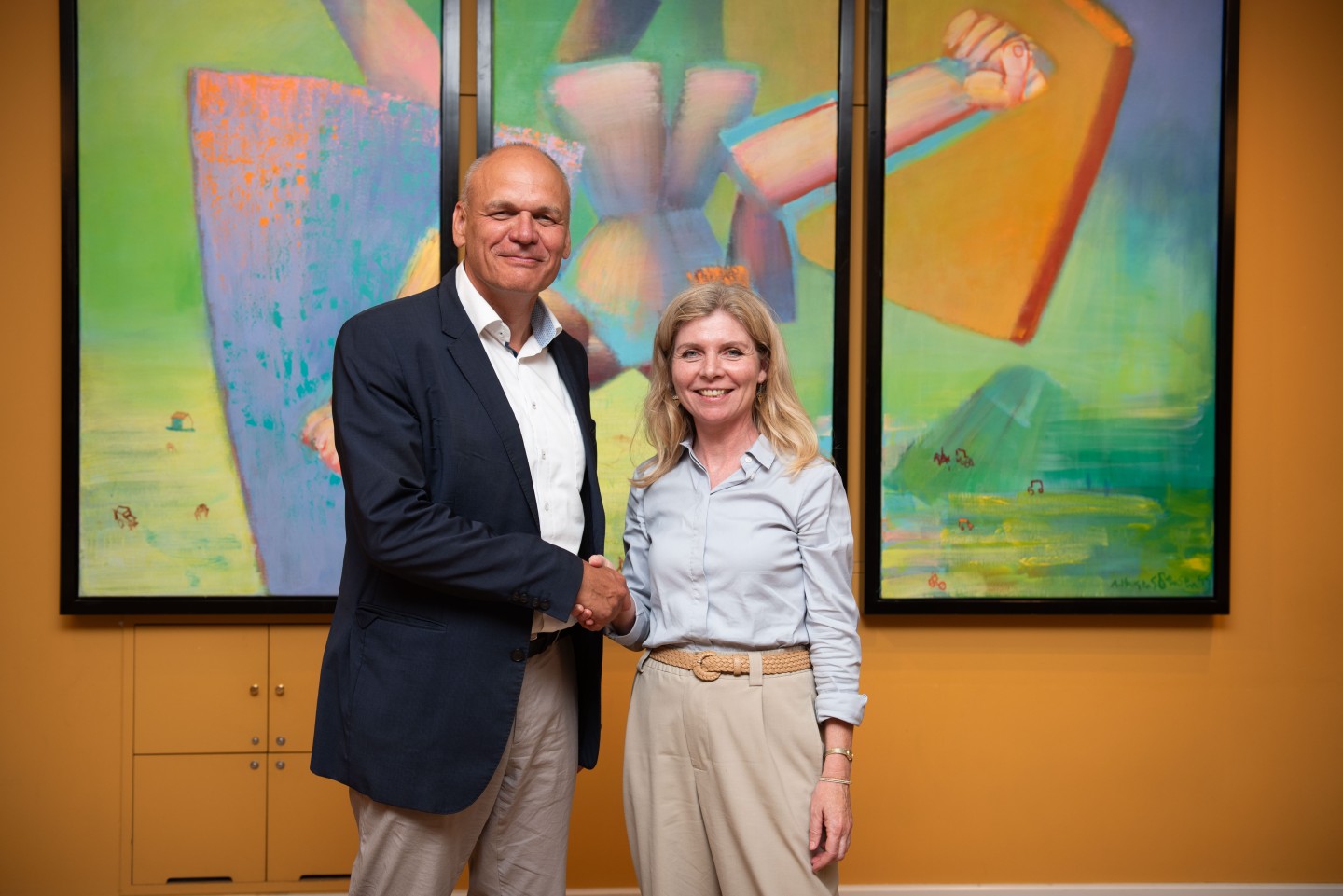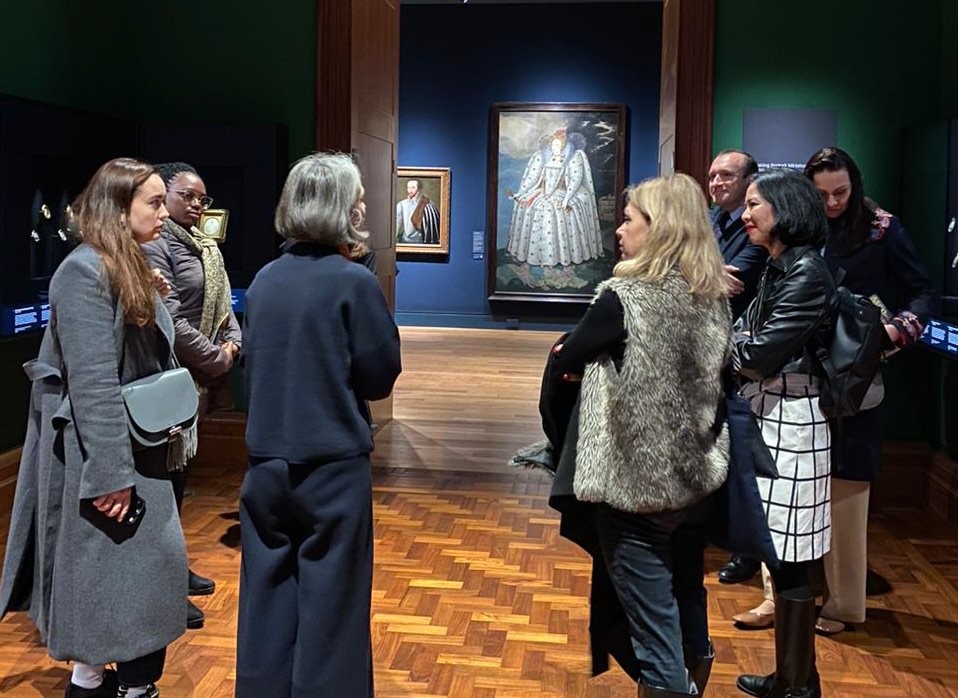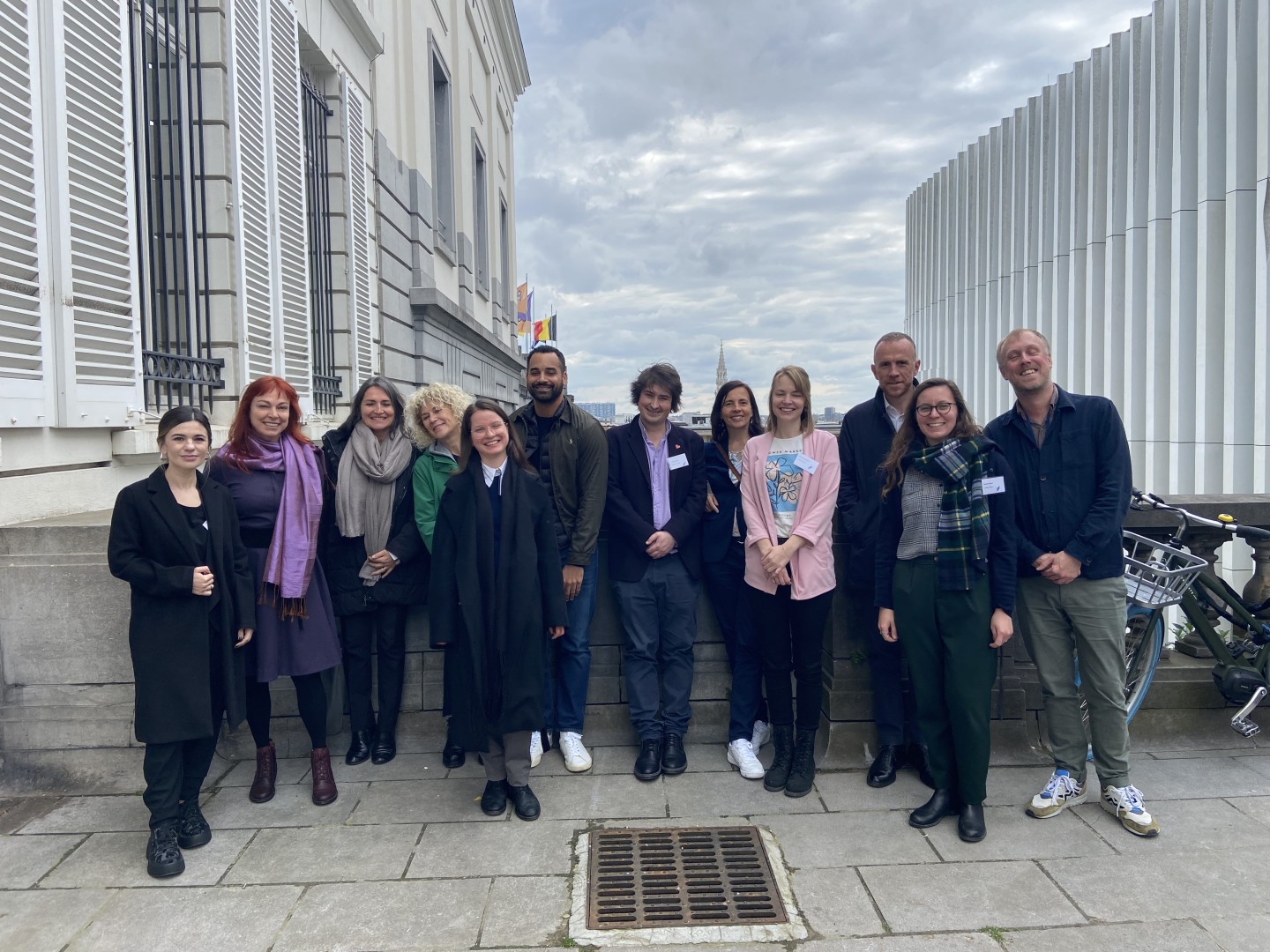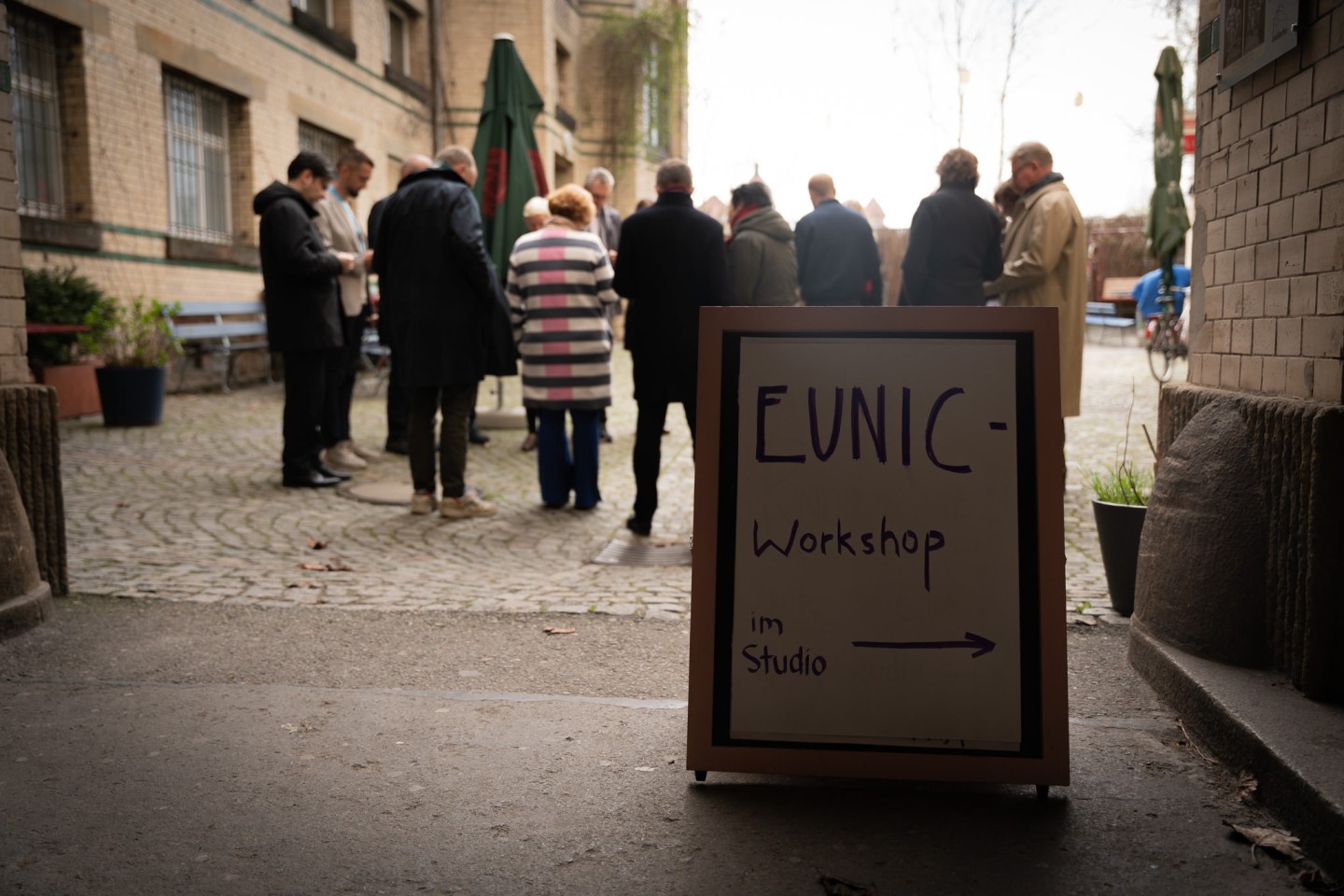
Seeing the unseen
In March, directors and senior strategists of 16 different EUNIC members met in Chemnitz, Germany to discuss and exchange on changing geopolitics. This blogpost by Kirsten van den Hul, Director of DutchCulture and member of the EUNIC Board of Directors, offers personal insights into the meeting and the discussions on concerns and challenges as well as lessons learned and opportunities in light of changing world dynamics and new geopolitics.

An enormous head of Karl Marx gently reminds us of the city’s previous life as Karl-Marx-Stadt: Chemnitz, European Cultural Capital 2025, and host to our recent EUNIC Knowledge Sharing Workshop on geopolitics, organised by Goethe-Institut and Ifa. For those of you who never visited this fascinating German city near the Czech border: it was built to house a million, but currently is home to a little over 200,000 inhabitants. The avenues are wide, the buildings are big, and the plans for next year’s programme are even bigger. It was inspiring to hear from the Cultural Capital team how they invite visitors to ‘see the unseen’, working across generations, different communities, and even across borders to tell the stories of this city and region.
But even more inspiring I found the conversations we had with our colleagues - other heads of member organisations within the EUNIC network. In our busy agendas, it is not often that we find (or make..) time to reflect on the big questions of today and tomorrow, let alone to have the opportunity to exchange in a safe (Chatham House) setting among peers. What do recent geopolitical developments such as the war in Ukraine and Gaza mean for our work on cultural relations? Do we speak out, or rather build bridges in silence? How does it affect our work with communities and artists, back home and abroad? And what does the future hold, bearing in mind that several European countries will see or already have seen elections, which may pave the way for right-wing, populist, or nationalist governments?
At DutchCulture, some of these big questions are at the core of our day-to-day work. Such as the topic of Decolonisation – also the theme of a previous EUNIC Knowledge Sharing Workshop, which took place last November. Decolonisation is about the importance to acknowledge the ways in which colonial structures and ways of thinking continue to shape our world, including heritage, but also the global political and cultural landscapes and relationships – and therefore by definition also impact the way we engage in cultural relations.
Culture as a bridge or as a divisive force? I personally still wholeheartedly believe in the former: the unbelievable power of culture to connect and inspire. Or, as author bell hooks so eloquently put it: ‘The function of art is to do more than tell it like it is – it’s to imagine what is possible’. Which is exactly what we did in Chemnitz. Thank you Gitte and Johannes and everyone at team Ifa and Goethe, thank you moderator Arne, thank you, dear colleagues. Let us continue to build bridges, see the unseen, and most of all: imagine what’s possible.
